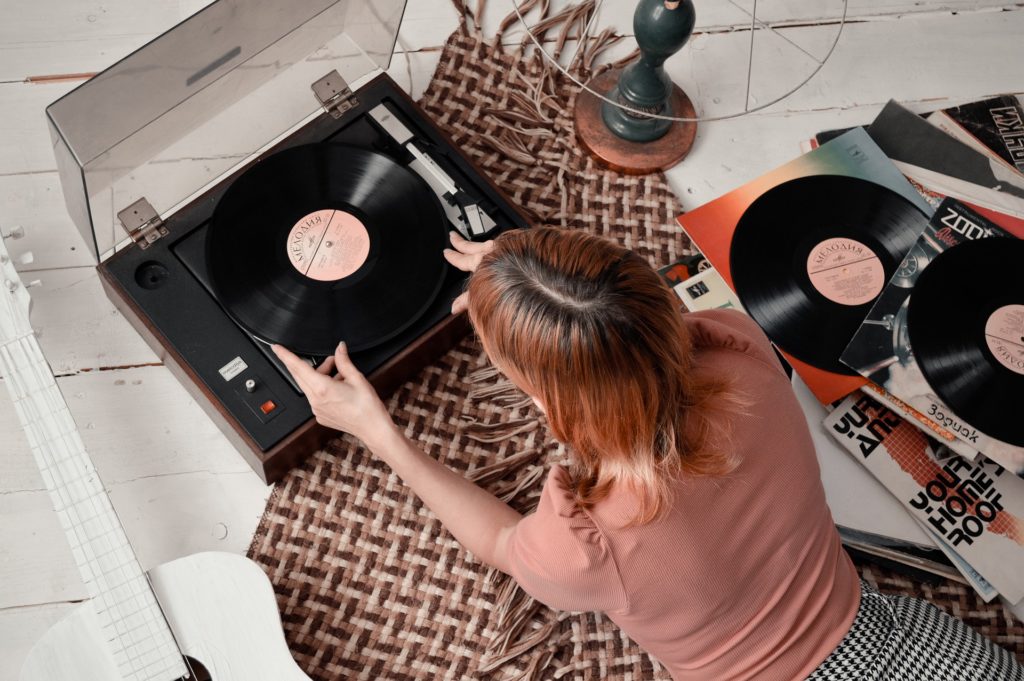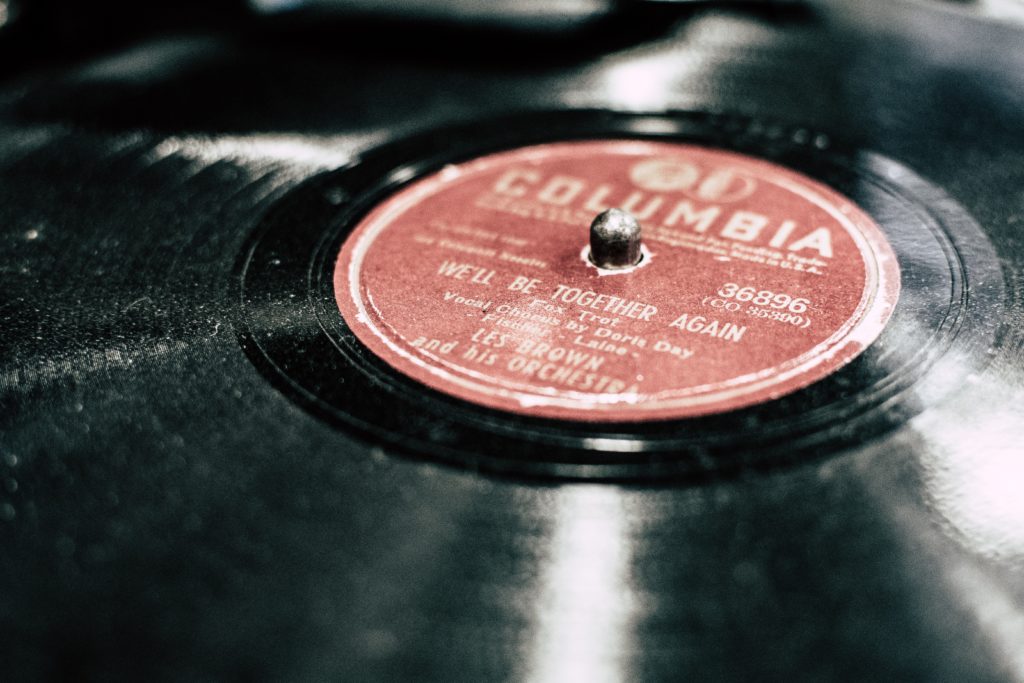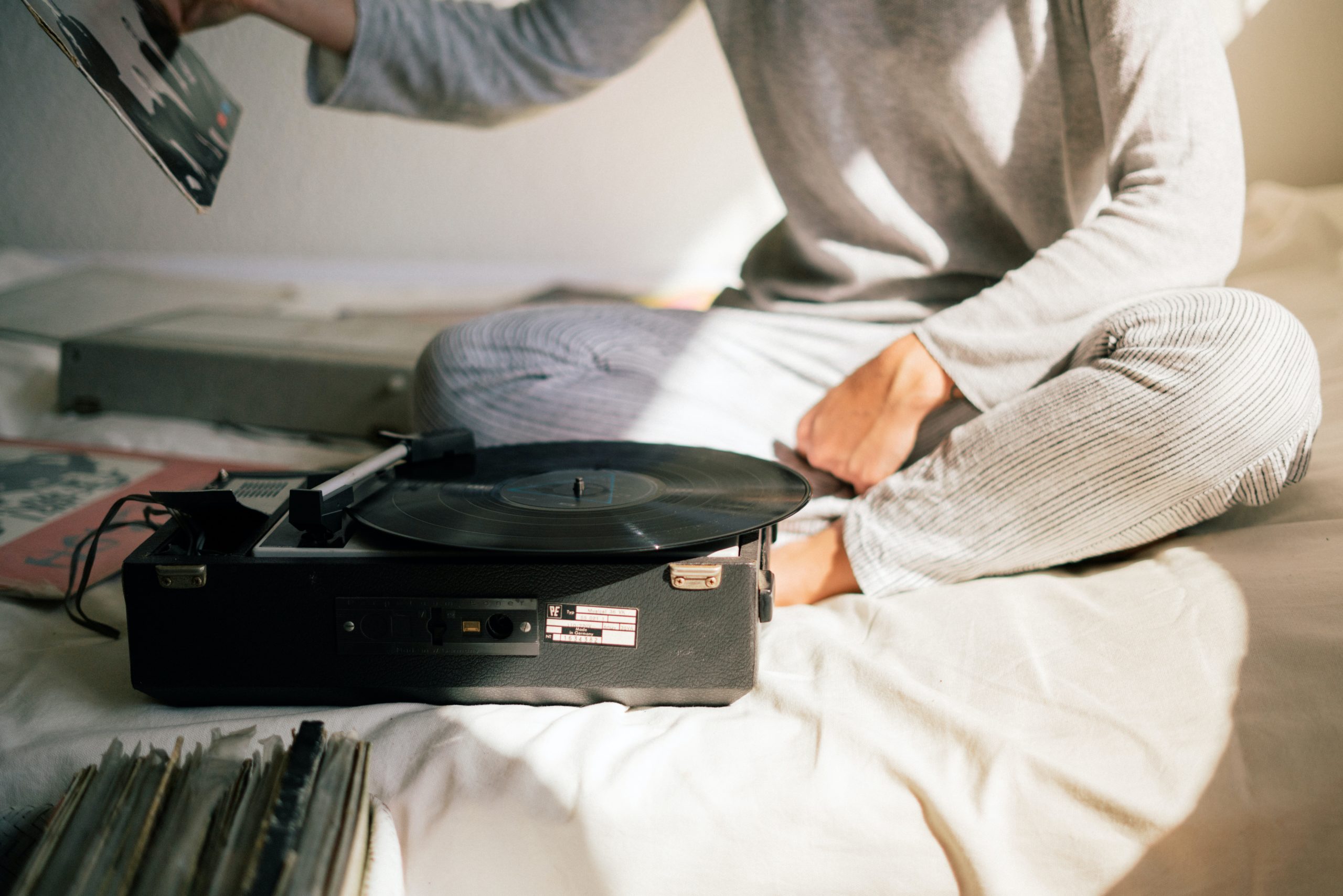Known commonly today as a record player, inventions of phonograph technology were noted as early as 1857. Thomas Edison is usually credited with the invention in 1877, however.
The LP or long-playing record was created by Columbia Records in 1948. Thirty minutes of track time could be recorded onto each side of the vinyl. The smaller 45-RPM record became popular in the 1950s. Also called “singles,” these could play eight minutes of tracks on each side.
Record players continued to increase in sound and quality as time progressed. They became very popular and widespread methods of recorded music. They began to die out, however, in the 1980s when cassette tapes gained popularity and later, CDs.
LPs have seen a sudden rise in popularity once more in recent years. What is the reason for this trend? Why are they so desirable now in a world that still has CDs and even digital music?
In 2017, LPs saw their highest yearly sale rate since 1991 with over fourteen million sold in the United States alone. It had been seeing an increase each year the 12 years before that. Sales from 2020 showed an increase of 40 percent compared to 2019. Popular artists are now even releasing brand new albums in the form of vinyl that can be found in stores. It is reported that about half of vinyl purchasers are 25-years-old or younger.

There are many reasons that suggest why this surge in vinyl sales has occurred. The first being the fact that they are physical items that can be collected. According to an article on Yamaha, LPs can be purchased at a store and held, giving people a sense of ownership. This is quite unlike digital music, which is how most music listeners have obtained and listened to their music in recent years. Physical albums include large images of album covers as well as other artwork. They also have information about the people who were involved in the creation of the album, or liner notes. For collectors, searching for desired vinyl that is rare can be fun.
Some people claim that records have a better sound quality than even digital music. According to Vox, LPs sound better because they allow the listener to hear even the small distinct parts of a song. When created as a digital format, songs are compressed for storage purposes, losing these features and thus not having as good of quality.
Being part of a generation attracted to vinyl, I feel that these factors are true – at least for me. I have always been one who prefers to own a physical item: books, movies, music – you name it. I probably own about 30 LPs currently, from Doris Day all the way to Taylor Swift’s Folklore, and I just really enjoy collecting them. There is just something about being able to hold it in my hands, look at it or put it in the player. It also makes me feel more connected to the music. Also, when I put on one of my LPs, I am less likely to skip a song. These are occasions where I am really in the mood to listen to music and intend to give it my focus as I go through an entire album.

Another factor that gets me is the colored LPs. I have some in gold, blue, green and more that have other neat designs on them. These vinyl which are typically special editions of albums are great collectibles! While you cannot beat the classic black record, these colored ones have something unique about them too.
As for sound quality, I do agree that LPs sound better than digital files. I have noticed when listening that there are instruments or other features of songs that stand out to me on my record player. It almost sounds more natural. Sometimes I wish that I could have at least a CD or digital version of how that song sounds just so I can take it with me wherever I go.
A popular question I keep seeing and wondering myself is: is this vinyl record resurgence here to stay, or is it just a fad that will leave us again in the future?
According to an article from Vox, vinyl sales are guessed to be occurring more in second-hand stores, rather than being purchased new. While this does not mean that they will die out, it does not necessarily mean that the industry as a whole will sustain either. If people are buying records used, then the artists and other people involved in the creation of the album will not receive a profit.
An article from the Guardian argues that LPs will help the music industry thrive. Producing and selling physical records will bring in more money than allowing fans to listen to basically any music they want for a small monthly price through streaming services. The best part for these companies is that the fans want the vinyl. They like to collect them. Of course, they will likely not be able to surpass streaming music, but it is a method that, currently, can help artists and labels make more money on their work. Personally, I hope they are here to stay. Collecting vinyl is like a hobby to me and to many others. While older ones will always be available through small record stores or websites like eBay, being able to find them in bigger stores and seeing new ones released by current artists is pretty great. Music is a big part of many people’s lives, which I think can lead them to various forms of listening to it. Even cassette tapes are starting to come back around. Having a connection with music, I think, is causing people to buy them in these different formats to connect even further.
Rebekah Davidson
Intern

